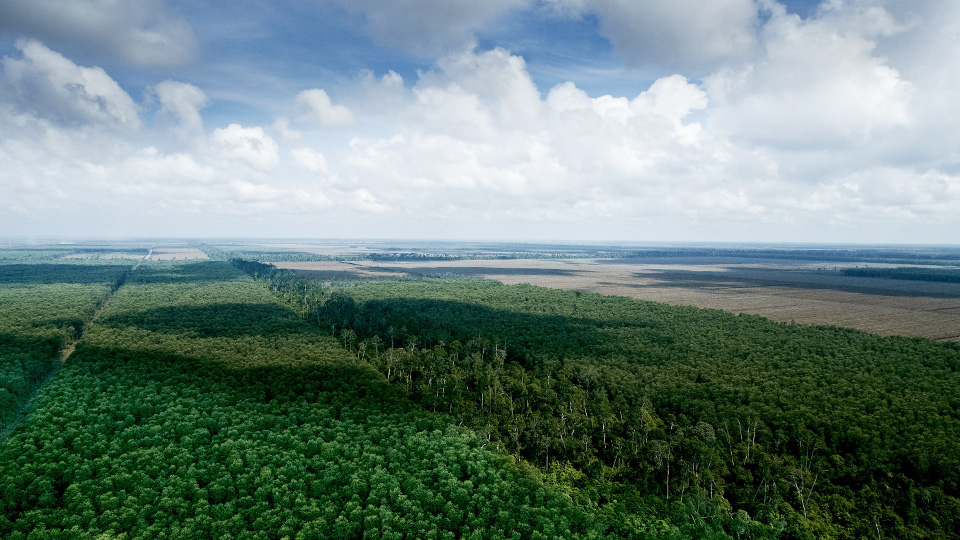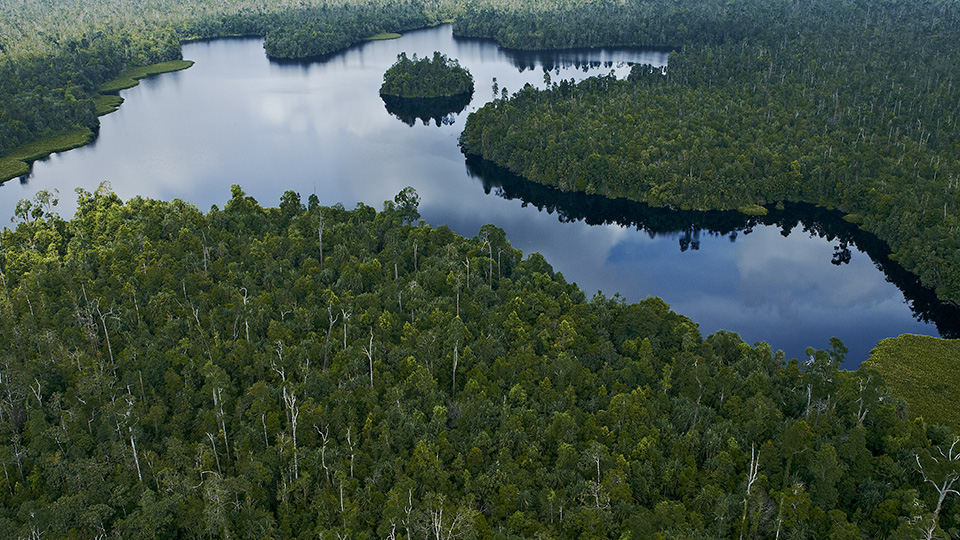- Details
In the midst of land scarcity and uncertain weather, an integrated agriculture system is deemed to be the solution for farmers to manage their lands productively. Integrated farming uses multiple cultivation initiatives in the same area to deliver more sustainable agriculture. This system combines agriculture, farming, fishery, and other activities using the same land area – enabling farmers to gain additional income rather than relying on a single crop.
Farmers can continue to earn income from livestock, gardening and fishery between harvests of their main crop, ensuring a more reliable revenue stream and helping eliminate poverty. As a company that supports the development of small and medium businesses around its operational area, APRIL has been championing this since 1999. This program is part of the Community Development initiative providing training for farmers and facilitating technical assistance to increase their income. To date, there are over 2,200 farmers and 119 farmers groups with 1,632 hectares of land participating in the program.
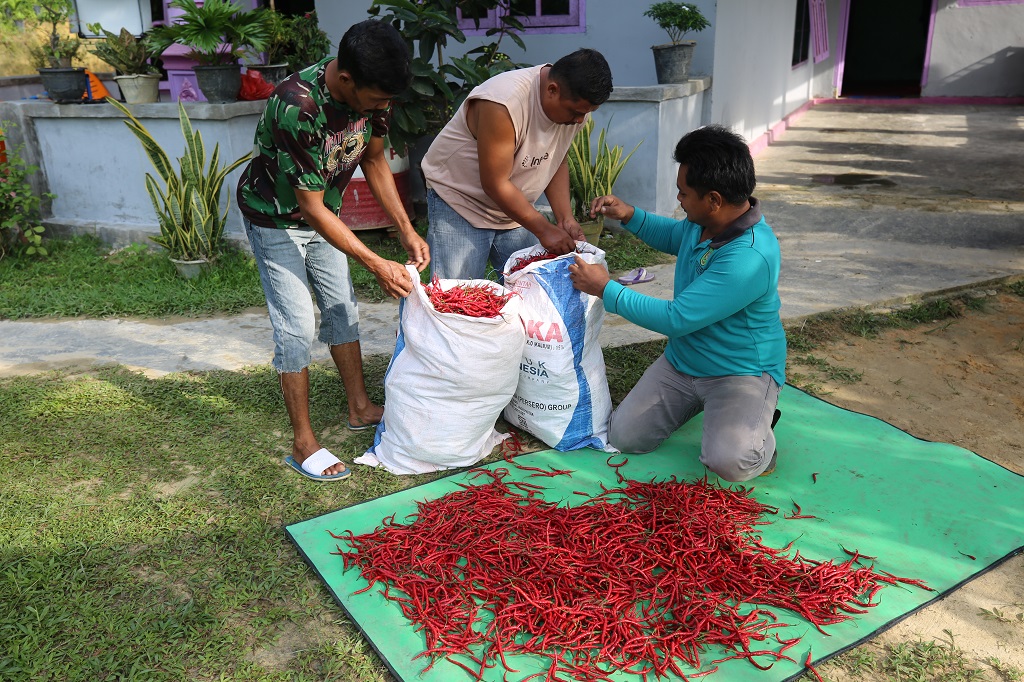
Back in 2017, 167 farmers were trained to cultivate farmland under the program, while 57 farmer groups were supported with agricultural materials. So far, 2,200 households have received support for agricultural materials via the IFS.
- Details
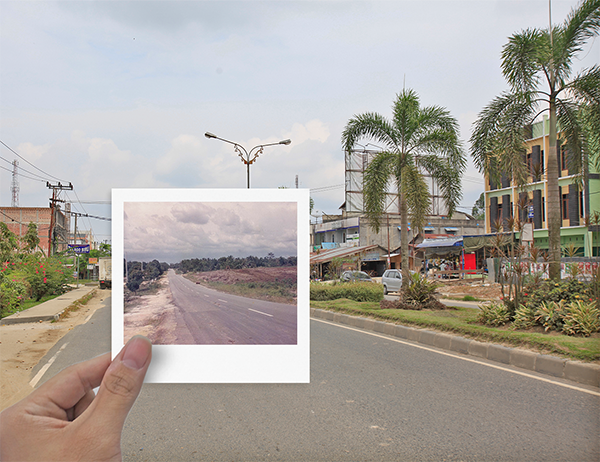
Just over 25 years ago, the town of Kerinci on the Indonesian island of Sumatra was home to just 200 dwellings. There were no roads so the only access was on foot or by boat, and most inhabitants made a living as fishermen or illegal loggers.
Today the town is home to over 100,000 people, it has a small airport and two ports, and its produce is used by millions of consumers in countries around the world.
Read more: Before and after: The growth of Kerinci in pictures
- Details
With few job opportunities when he graduated high school in the Pelalawan Regency of Indonesia’s Riau Province in 1993, Mahyuddin Pasaribu turned to illegal logging.
Along with a small group of local residents he would cut down trees and sell them to wood collectors.
But in 2002 the Indonesian government issued stricter regulations on lumber exports and stepped up enforcement towards illegal deforestation. Two years later Mahyuddin was raided by the Natural Resource Conservation Agency. Some of his equipment was confiscated and his business was closed down.
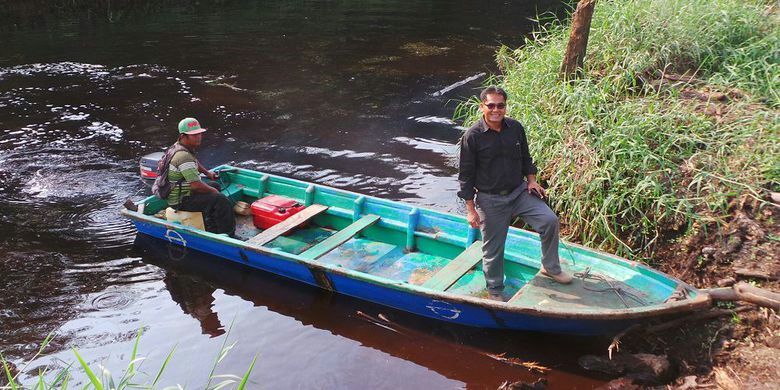
Determined to find a better way to support his family, he approached APRIL Group subsidiary Riau Andalan Pulp and Paper (RAPP), which was expanding its operations in the area, to look for work.
“I told them that I had not wanted to take wood illegally but that I had resorted to doing so because I needed to feed my family,” he said.
- Details
Education is a basic human right, but for the children of Tanjung Padang village on Padang Island off the coast of Sumatra, there was a problem: the only way to reach their school a few kilometres away was across a fragile wooden bridge.
During bad weather the bridge could be slippery and, to avoid the risk of falling into the water, many children would miss school.
Crossing the small bridge could take 15 minutes or more as the children lined up to pass one at a time, causing pupils to be late for class.
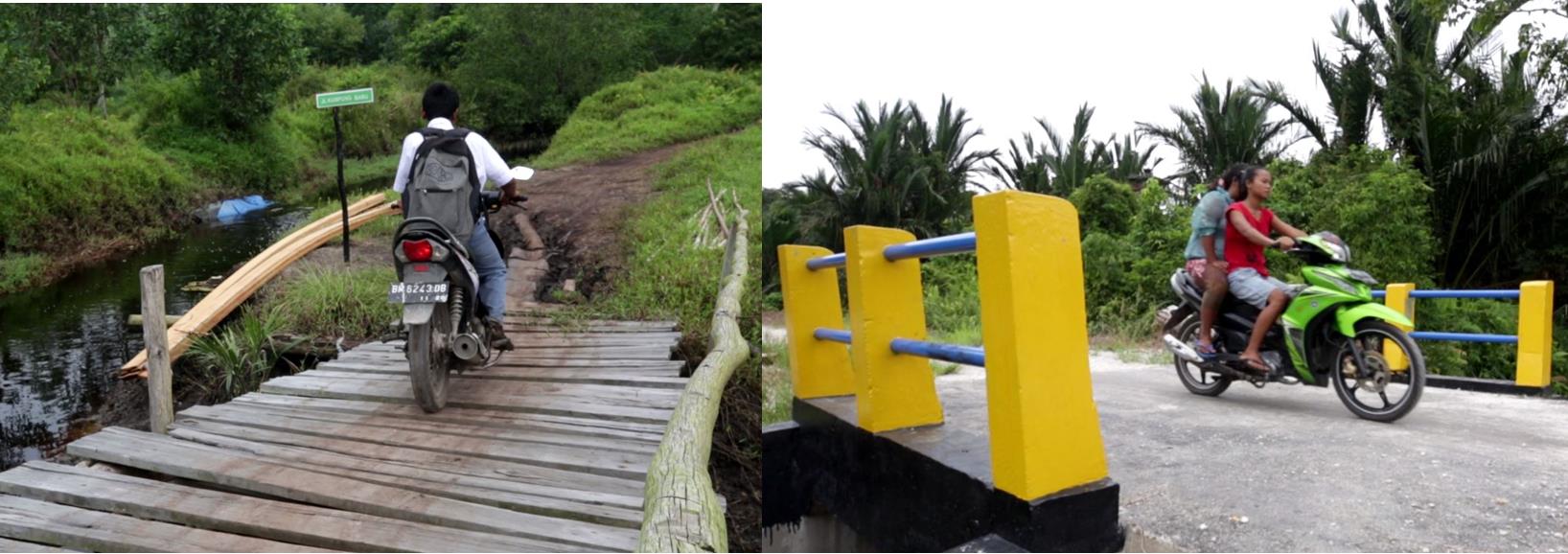
That’s all changed thanks to the village’s participation in APRIL’s Fire Free Village Program (FFVP). The community used their IDR100 million reward for successfully preventing fires in 2016 to construct a concrete bridge on the road.
Read more: Village children can get to school thanks to FFVP


